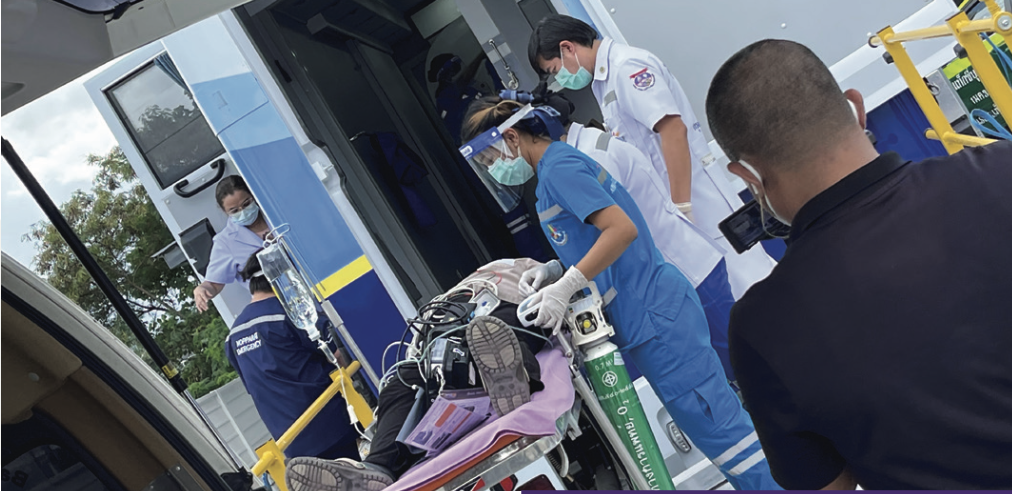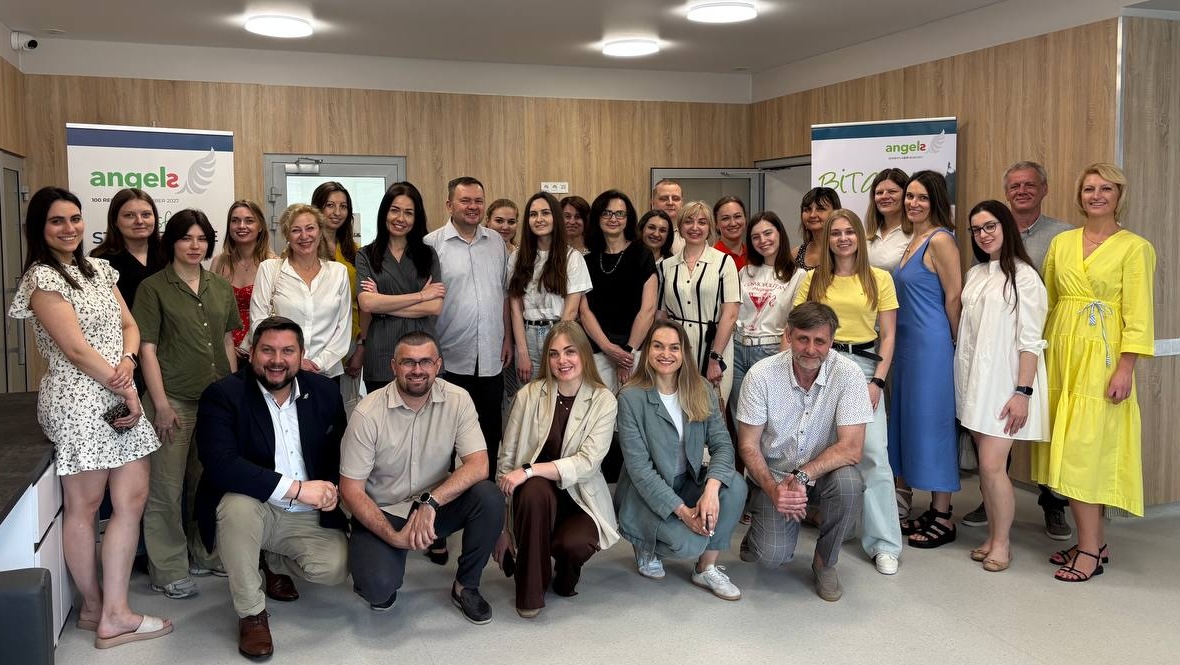A implantação de unidades móveis de AVC na Tailândia tem o potencial de salvar vidas e reduzir a incapacidade nos sobreviventes de AVC. Um exercício de simulação com a equipa Angels Tailândia coloca-o à prova.

O tempo é da maior importância no tratamento de doentes com AVC isquémico agudo. Quanto mais cedo os doentes receberem tratamento, maior a probabilidade de sobreviverem ao evento e de regressarem às suas vidas com incapacidade mínima. Gerir o tempo significa salvar vidas mais rapidamente, mas o trânsito e o terreno apresentam obstáculos significativos na redução do tempo de viagem e no intervalo entre o início e o tratamento.
As unidades de AVC móveis são uma nova abordagem para aceder a cuidados mais rápidos dos doentes. Têm o potencial de reduzir significativamente o tempo que os doentes com AVC demoram a aceder ao tratamento; chegar aos doentes mais rapidamente, e o diagnóstico e o tratamento podem ser geridos imediatamente a caminho do hospital, aumentando a probabilidade de sobrevivência e qualidade de vida.
As unidades móveis de AVC já estão operacionais em cinco zonas na Tailândia, para apoiar o tratamento de doentes de AVC na comunidade. Em 2021, tornaram-se objeto de um estudo realizado para avaliar e melhorar a sua capacidade de reduzir o tempo de tratamento. A equipa Angels Tailândia iniciou duas simulações de unidades de AVC móveis virtuais – a primeira do país – no Instituto Neurológico da Tailândia, um hospital especializado em neurologia localizado em Banguecoque, e no Nopparat Rajathanee Hospital, um importante hospital universitário afiliado a muitas escolas de medicina em toda a Tailândia.
O exercício de simulação no Instituto Neurológico da Tailândia atraiu aproximadamente 30 participantes, incluindo médicos de emergência, neurologistas, enfermeiros de AVC e radiologistas. Abriu com uma discussão para compreender o processo que governa a unidade de AVC móvel, após o qual a equipa Angels partilhou as suas sugestões para ajustar o fluxo de trabalho para torná-lo mais conveniente e mais rápido. O sistema foi então testado num evento virtual gravado em vídeo.
A simulação começou quando um “doente” ligou para a linha direta do hospital 1669 para comunicar sintomas que sugeriam AVC. Foi enviada para o local uma unidade móvel de AVC com um médico, enfermeiro e radiologista, onde avaliaram o doente quanto a AVC. Foi realizado um exame de TC a bordo da unidade e as imagens foram transmitidas através de um sistema que ligava o veículo e o hospital.
Após consulta remota com neurologista ligado via rede de telemedicina, optou-se por tratar o doente com trombólise. O médico a bordo da unidade móvel administrou imediatamente o bólus, fazendo com que o doente recebesse rt-PA nos 20 minutos após a chegada da unidade de AVC móvel. A unidade regressou então ao hospital, onde uma equipa de especialistas estava pronta para receber o doente, que foi internado na unidade de AVC.
A simulação mostrou que as unidades de AVC móveis podem reduzir o tempo até ao tratamento para entre 30 e 60 minutos, em comparação com o tempo porta-a-agulha mediano de 120 minutos para doentes que viajam para o hospital sem qualquer assistência. As unidades móveis de AVC oferecem uma boa via alternativa para doentes com AVC agudo, e oportunidades de ajuste e melhorias emergentes da simulação, sugerem que pode tornar-se uma ferramenta ainda mais poderosa na luta contra a mortalidade e incapacidade relacionadas com o AVC.



